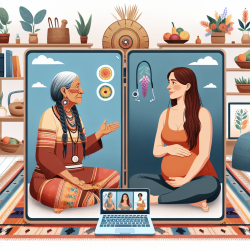Understanding Genetic Feedback: Lessons from Botswana for Practitioners
As practitioners in the field of speech-language pathology, it is crucial to stay informed about the latest research and methodologies that can enhance our practice. A recent study titled "Participant views on practical considerations for feedback of individual genetic research results: a case study from Botswana" offers valuable insights into how genetic research results should be communicated to participants, particularly in low- and middle-income countries (LMICs) like Botswana. This blog post will explore the findings of this study and discuss how practitioners can apply these insights to improve their practice.
The Importance of Personalized Feedback
The study conducted in Botswana involved focus group discussions with adolescents and their parents who participated in a genomics study. The findings revealed a strong preference for receiving genetic results in person, supported by counseling. Adolescents preferred feedback from researchers, while parents favored doctors associated with the study. This highlights the importance of personalized feedback, considering the participants' context and preferences.
Key Takeaways for Practitioners
- Personalized Approach: Tailor feedback methods to the individual preferences of participants, ensuring they feel comfortable and supported throughout the process.
- In-Person Communication: Whenever possible, deliver results face-to-face to provide an opportunity for immediate counseling and clarification.
- Collaborative Efforts: Consider a team approach involving researchers, doctors, and counselors to provide comprehensive feedback and support.
- Timely Feedback: Balance the need for thorough research with the urgency of delivering results, especially for conditions requiring immediate attention.
Encouraging Further Research
While the study provides valuable insights, it also highlights the need for further research into feedback practices in different cultural and socioeconomic contexts. Practitioners are encouraged to engage in research and collaborate with interdisciplinary teams to develop effective feedback strategies that are culturally sensitive and resource-efficient.
Conclusion
By understanding and implementing the findings from this study, practitioners can enhance their communication strategies and provide better support to participants in genetic research. As we strive for data-driven decisions and improved outcomes for children, let us embrace the lessons from Botswana and continue to explore innovative approaches in our practice.
To read the original research paper, please follow this link: Participant views on practical considerations for feedback of individual genetic research results: a case study from Botswana.










